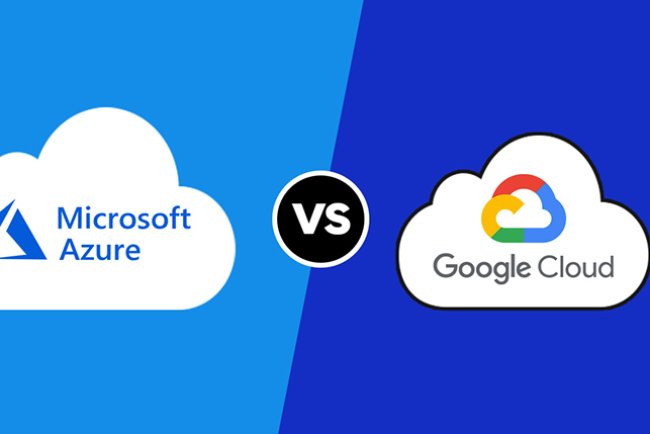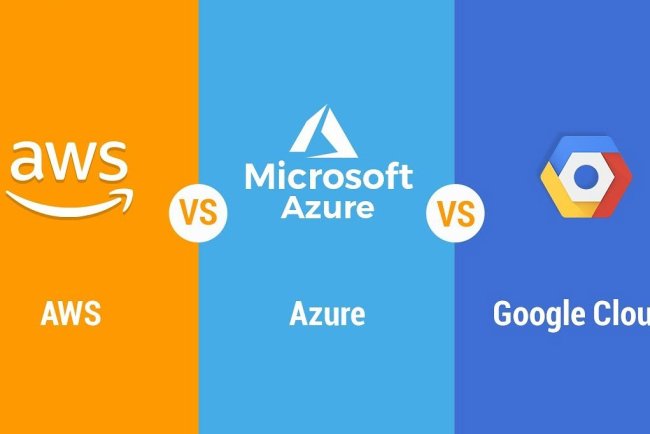The Cloud Clash: Is IBM Still a Contender Against Microsoft Azure’s Market Ascent?
Explore how IBM Cloud is carving a niche in hybrid and regulated industries while Microsoft Azure continues rapid growth in enterprise cloud adoption. Which platform fits your business in 2025? IBM Cloud focuses on hybrid, secure, regulated industries while Azure dominates with scale and integration. Compare IBM vs Azure and choose the best cloud provider for your enterprise needs.

The Cloud Clash: Is IBM Still a Contender Against Microsoft Azure’s Market Ascent?
1. Introduction: The Dynamic World of Cloud Computing
In today’s digital era, cloud computing is no longer a buzzword — it’s the backbone of modern business. From startups to global enterprises, organizations rely on cloud platforms to scale efficiently, store vast amounts of data, power AI, and ensure 24/7 availability.
But what exactly is cloud computing?
For beginners, it’s helpful to think in three key layers:
-
IaaS (Infrastructure as a Service): Virtual servers, storage, and networking.
-
PaaS (Platform as a Service): Tools for developers to build, run, and manage applications without worrying about infrastructure.
-
SaaS (Software as a Service): Ready-to-use software delivered over the internet (like Gmail or Salesforce).
When we talk about the cloud landscape, three names dominate the global stage:
-
Amazon Web Services (AWS)
-
Microsoft Azure
-
Google Cloud Platform (GCP)
Among these, Microsoft Azure has seen explosive growth in recent years — becoming a central figure in enterprise cloud adoption.
So, where does this leave IBM?
Many ask: “Is IBM still relevant in the cloud game?” The answer is more nuanced than a simple market share chart — and it reveals IBM’s strategic pivot to niche dominance, rather than direct hyperscale competition.
2. Microsoft Azure's Ascent: A Market Leader’s Journey
Let’s begin with the obvious frontrunner: Microsoft Azure.
Azure by the Numbers (Q1 2025):
-
Market Share: Approximately 22–25%, second only to AWS.
-
Revenue Growth: Azure’s Intelligent Cloud segment grew by 20–21% year-over-year, driven by enterprise demand and AI adoption.
-
Enterprise Penetration: 85% of Fortune 500 companies use Azure in some form.
-
Core Strength: Seamless integration with Microsoft products like Office 365, Windows Server, Dynamics, and Power BI.
Azure provides a full spectrum of services, including:
-
Virtual Machines, Kubernetes, Databases, Storage
-
AI/ML services, IoT solutions, DevOps tools
-
Copilot tools and Azure OpenAI integrations
In short, Azure is the go-to cloud for organizations already invested in Microsoft — making migration, integration, and scaling simpler and faster.
3. IBM’s Cloud Strategy: Hybrid, Secure, and Enterprise-Focused
IBM doesn’t compete by playing the same game. Instead of matching hyperscalers gigabyte-for-gigabyte, IBM focuses on enterprise complexity, hybrid solutions, and regulated industries.
Hybrid Cloud: IBM’s Strongest Bet
Hybrid cloud means combining public cloud, private cloud, and on-premises systems into one flexible infrastructure. IBM believes this is the future for large enterprises, and they’ve invested heavily to lead this space.
The acquisition of Red Hat in 2019 was a game-changer:
-
Red Hat OpenShift allows businesses to run containers anywhere.
-
Kubernetes-based portability means no vendor lock-in.
-
It’s open-source, flexible, and developer-friendly.
Enterprise-Grade Solutions for Regulated Industries
IBM serves industries where security, compliance, and reliability are non-negotiable:
-
Finance
-
Healthcare
-
Government agencies
With services like IBM Cloud for Financial Services, it ensures compliance with stringent industry regulations.
Watson AI & Data Expertise
IBM integrates AI through Watson, delivering solutions for:
-
Predictive analytics
-
Automation
-
Intelligent workflows
It’s not flashy like Azure’s AI offerings, but it's built for enterprises needing governed, explainable, and secure AI within a hybrid infrastructure.
Consulting & Integration
Unlike pure cloud providers, IBM is also a global consulting powerhouse. Their team helps enterprises modernize legacy systems, navigate hybrid strategies, and tailor cloud journeys to meet regulatory and technical demands.
4. Key Differences Between Microsoft Azure and IBM Cloud
| Aspect | Microsoft Azure | IBM Cloud |
|---|---|---|
| Market Focus | Broad – startups to enterprises | Narrow – complex, regulated, large-scale enterprises |
| Cloud Model | Public cloud and PaaS-driven | Hybrid and Multi-cloud specialist |
| Integration Strength | Windows, Office 365, .NET, Teams | Red Hat, OpenShift, Kubernetes |
| AI Capabilities | Copilot, OpenAI integration, Developer Tools | Watson AI for secure, governed enterprise AI |
| Security | Strong enterprise-grade security | Built for regulatory compliance from the ground up |
| Weakness | Can feel overwhelming for non-Microsoft-native organizations | Smaller ecosystem, less visibility in startup space |
5. Who Should Choose What?
Choose Azure If You:
-
Already use Microsoft products extensively
-
Need wide-ranging services for apps, analytics, and DevOps
-
Want AI/ML and tools at scale
-
Are building new cloud-native applications
Choose IBM Cloud If You:
-
Operate in banking, healthcare, or government
-
Have legacy systems that need to stay partly on-premises
-
Prioritize open-source and hybrid strategies
-
Need deep consulting support to manage transitions
6. The Future of Cloud: A Collaborative Ecosystem
Despite their differences, IBM and Microsoft are not enemies — they even partner on specific cloud integrations, such as running Azure services on IBM PowerVS.
Why? Because multi-cloud is the future.
Most enterprises are now combining multiple cloud providers — picking best-of-breed services from each to:
-
Avoid lock-in
-
Optimize cost
-
Leverage specialized tools
IBM’s strength is in custom enterprise solutions, not in general-purpose cloud domination. And in that niche, it continues to shine.
7. Conclusion: Making the Right Cloud Choice
Cloud computing is not a one-size-fits-all world. While Azure dominates with size, scale, and ecosystem, IBM holds strong with its hybrid-first approach, security legacy, and industry-specific solutions.
Key Takeaway for Beginners:
The best cloud provider depends on:
-
Your current tech stack
-
Industry needs
-
Complexity of infrastructure
-
Openness to vendor lock-in
-
Need for consulting and integration
Navigating the cloud can feel like a maze — but clarity starts with understanding. Whether you're a startup, SME, or enterprise looking to scale securely:
Want help choosing the right cloud strategy or building your hybrid cloud infrastructure?
Try out GOMSUS Landing Page — the best place to showcase your product, service, or cloud offering.
Visit now: www.gomsu.in
-
Landing pages for businesses
-
Built for speed, performance, and integration
-
Consulting support for digital transformation
Found this blog helpful?
Like this post
Comment your questions or feedback below
Share this with someone exploring cloud options
What's Your Reaction?






















